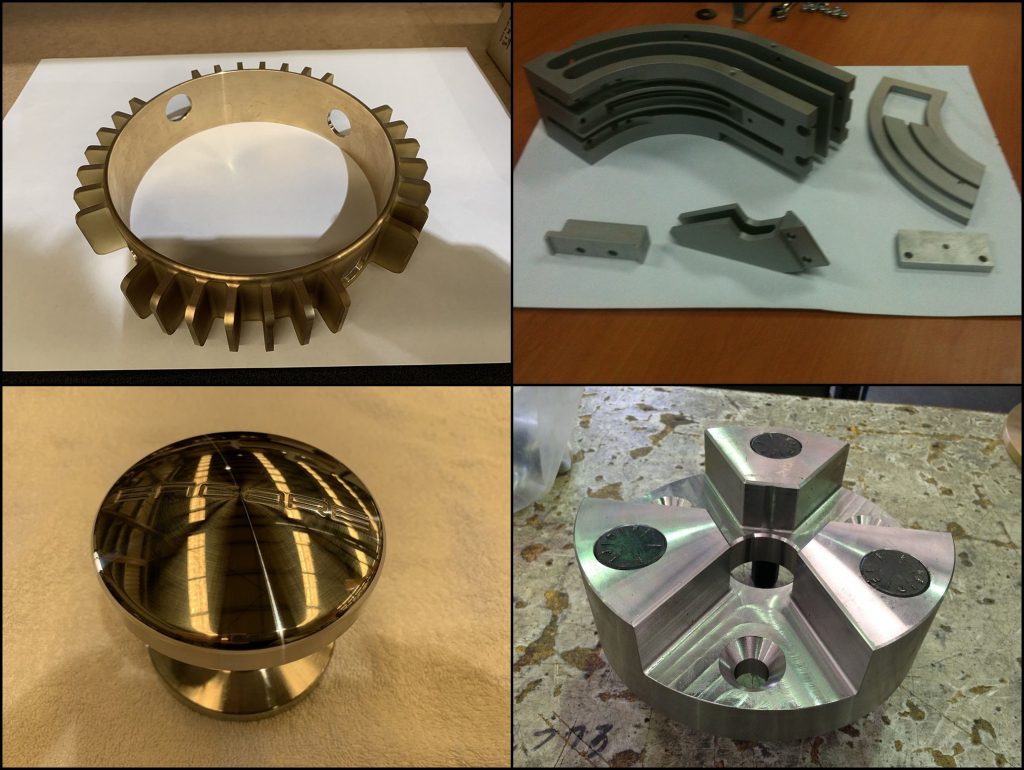
Explore the Top 10 CNC milling materials for precision manufacturing in our 2025 guide by Aero Spec Engineering. Find material choices for unmatched accuracy.
CNC milling materials are indispensable in precision manufacturing because they affect the quality and functionality of the final products. Selecting the right material can enhance performance, durability, and cost-effectiveness across various industries. This guide outlines the top 10 CNC milling materials essential for achieving optimal results in your manufacturing processes.
1. Aluminium Alloy: Aluminium alloys are popular due to their lightweight and high strength-to-weight ratio. They are easy to machine, making them ideal for various applications, from automotive parts to aerospace components.
2. Stainless Steel: Known for its corrosion resistance and durability, stainless steel is widely used in industries such as medical, food processing, and construction. Its robustness ensures that parts can withstand harsh environments.
3. Titanium Alloy: Titanium alloys offer exceptional strength and corrosion resistance, making them ideal for aerospace and medical applications. Although challenging to machine, advancements in CNC technology have made titanium milling more accessible.
4. Brass: Brass is an excellent material for precision machining due to its machinability and aesthetic appeal. Commonly used in electrical applications and fittings, brass also provides good corrosion resistance.
Plastics: Plastics are increasingly being used in CNC milling due to their versatility and lightweight nature. Materials like ABS and Nylon are preferred for their impact resistance and ease of machining, commonly found in consumer products and automotive components.
6. Copper: Copper is renowned for its excellent thermal and electrical conductivity. It is frequently used in electrical components and heat exchangers, although its softness requires careful handling during machining.
7. Magnesium: Magnesium is the lightest structural metal, offering an excellent strength-to-weight ratio. It is often used in aerospace, automotive, and electronics industries. Magnesium is also a good conductor of heat, making it suitable for heat sinks and cooling components.
8. Tool Steel: Tool steel is specifically designed for machining applications, offering high hardness and wear resistance. It is primarily used in the production of cutting tools and dies, ensuring longevity and performance under extreme conditions.
9. Composite Materials: Composites, such as carbon fibre-reinforced plastic, are increasingly being used in CNC milling due to their lightweight and high-strength properties. These materials are ideal for aerospace and automotive applications where weight reduction is crucial.
10. Nickel Alloy: Nickel alloy is a metal known for its high strength, resistance to extreme temperatures, and excellent corrosion resistance, making it ideal for challenging environments. Often used in aerospace, marine, and energy industries, nickel alloys perform reliably under high stress and exposure to harsh conditions.
Key Considerations When Choosing CNC Milling Materials
When selecting materials for CNC milling, several factors should be carefully considered to ensure optimal results. The choice of material can significantly impact not only the quality of the final product but also the efficiency of the machining process.
• Machinability: The ease of machining significantly influences production efficiency. Better machinability can reduce tool wear and prolong tool life.
• Strength and Durability: Selecting materials with high strength ensures they can handle the stress of their applications. Durability is crucial for maintaining performance over time.
• Cost: It’s essential to consider the budget when choosing materials. Balancing performance characteristics with cost can optimise overall project efficiency.
The choice of CNC milling material is critical to the success of a manufacturing project. By carefully considering the properties and applications of the available materials, engineers can select the most suitable option for their specific needs. Contact Aero Spec Engineering for your precision CNC machined components and assemblies.
Optimized by: Netwizard SEO
